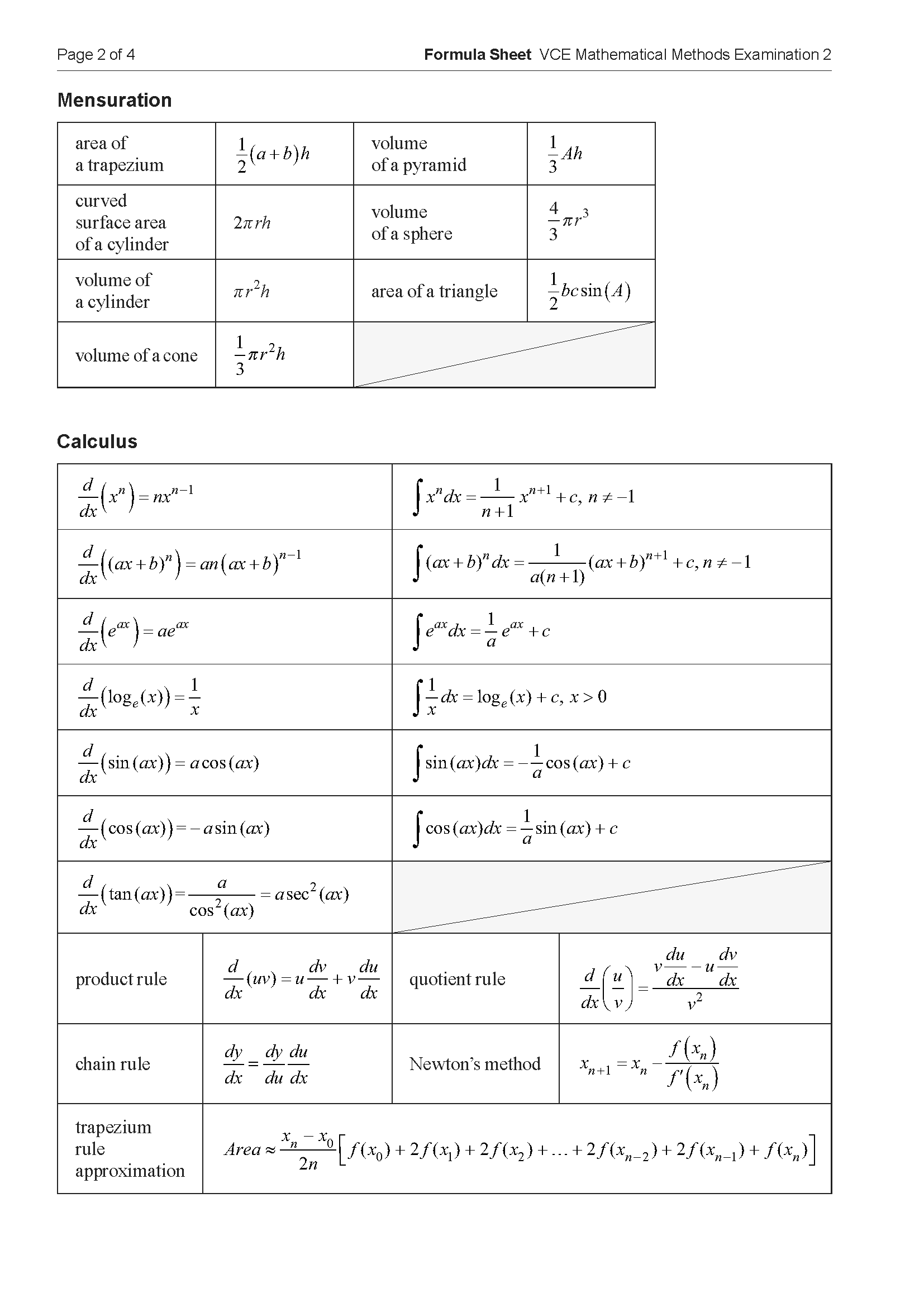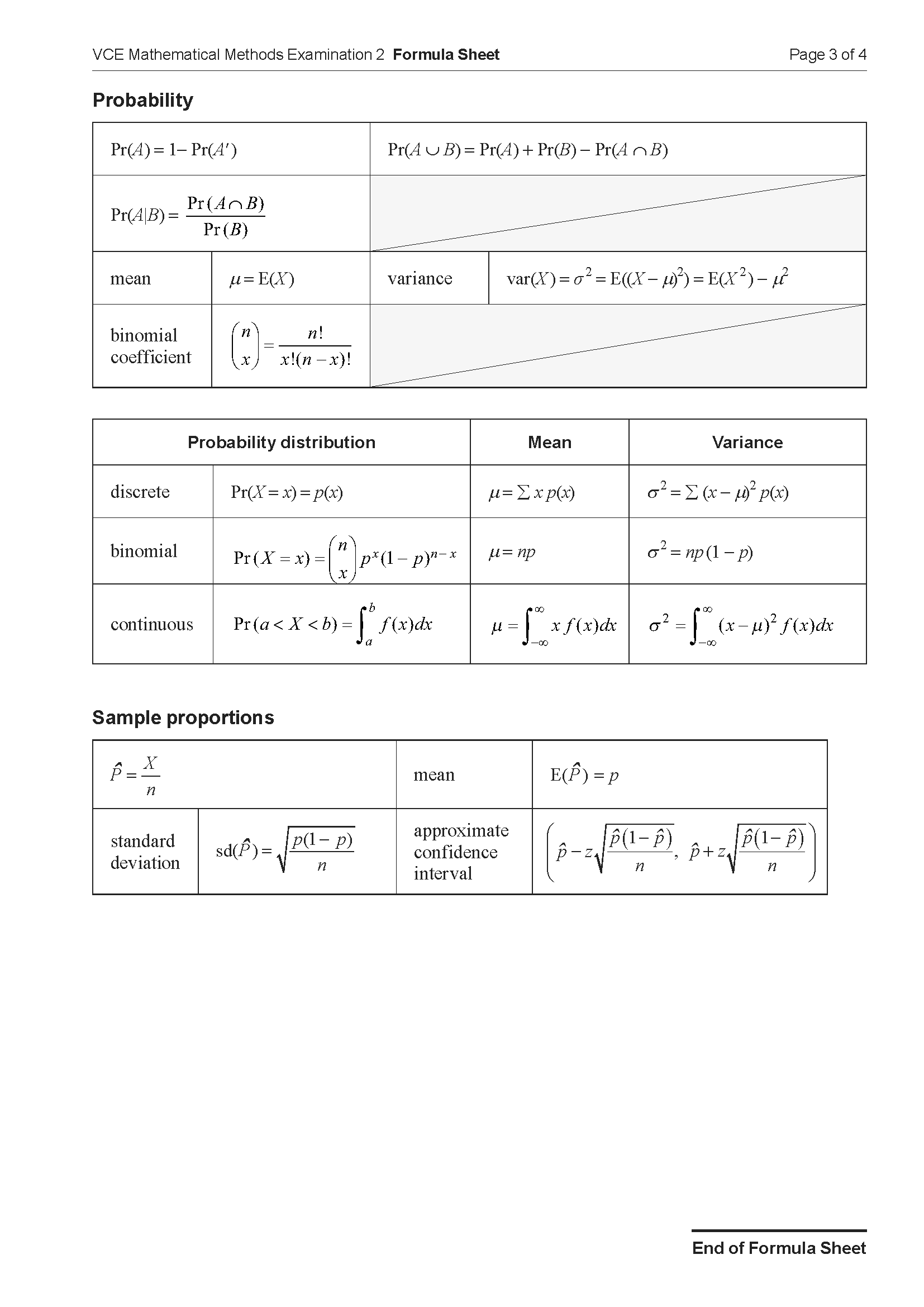2023 VCE Maths Methods Mini Test 1
Number of marks: 10
Reading time: 2 minutes
Writing time: 15 minutes
Section A – Calculator Allowed
Instructions
• Answer all questions in pencil on your Multiple-Choice Answer Sheet.
• Choose the response that is correct for the question.
• A correct answer scores 1; an incorrect answer scores 0.
• Marks will not be deducted for incorrect answers.
• No marks will be given if more than one answer is completed for any question.
• Unless otherwise indicated, the diagrams in this book are not drawn to scale.
The amplitude, \( A \), and the period, \( P \), of the function \( f(x) = -\frac{1}{2} \sin(3x + 2\pi) \) are
- A. \( A = -\frac{1}{2}, \quad P = \frac{\pi}{3} \)
- B. \( A = -\frac{1}{2}, \quad P = \frac{2\pi}{3} \)
- C. \( A = -\frac{1}{2}, \quad P = \frac{3\pi}{2} \)
- D. \( A = \frac{1}{2}, \quad P = \frac{\pi}{3} \)
- E. \( A = \frac{1}{2}, \quad P = \frac{2\pi}{3} \)
For the parabola with equation \( y = ax^2 + 2bx + c \), where \( a, b, c \in \mathbb{R} \), the equation of the axis of symmetry is
- A. \( x = -\frac{b}{a} \)
- B. \( x = -\frac{b}{2a} \)
- C. \( y = c \)
- D. \( x = \frac{b}{a} \)
- E. \( x = \frac{b}{2a} \)
Two functions, \( p \) and \( q \), are continuous over their domains, which are [−2, 3) and (−1, 5], respectively. The domain of the sum function \( p + q \) is
- A. [−2, 5]
- B. [−2, −1) ∪ (3, 5]
- C. [−2, −1) ∪ (−1, 3) ∪ (3, 5]
- D. [−1, 3]
- E. (−1, 3)
End of Section A
Section B – No Calculator
Instructions
• Answer all questions in the spaces provided.
• Write your responses in English.
• In questions where a numerical answer is required, an exact value must be given unless otherwise specified.
• In questions where more than one mark is available, appropriate working must be shown.
• Unless otherwise indicated, the diagrams in this book are not drawn to scale.
a. Let \( y = \frac{x^2 - x}{e^x} \). Find and simplify \( \frac{dy}{dx} \). 2 marks
b. Let \( f(x) = \sin(x) e^{2x} \). Find \( f'\left( \frac{\pi}{4} \right) \). 2 marks
Solve \( e^{2x} - 12 = 4e^x \) for \( x \in \mathbb{R} \). 3 marks
End of examination questions
VCE is a registered trademark of the VCAA. The VCAA does not endorse or make any warranties regarding this study resource. Past VCE exams and related content can be accessed directly at www.vcaa.vic.edu.au

